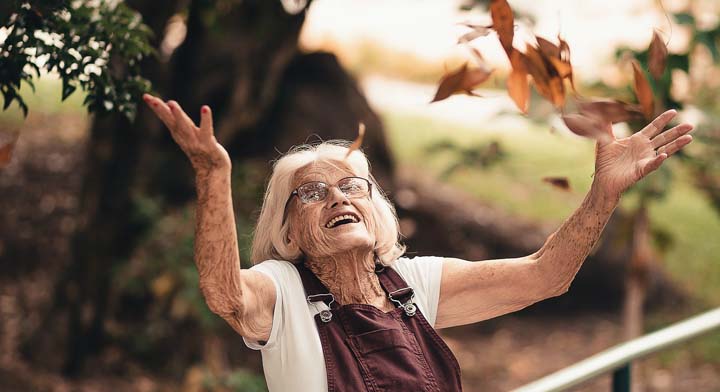
Most European countries are working already on easing their COVID-19 restrictions. All the US states are also gradually reopening, although with significant state by state differences. That does not mean there is no need for caution, especially for the elderly people. Once restrictions are lifted, new infections will be on the rise, and the elderly will be the first ones to suffer the consequences.
Older people face a higher risk of getting infected during a pandemic because they may have weaker immune systems, making them more susceptible to illnesses. Especially those who are suffering from a chronic disease like heart and lung diseases as well as diabetes, are more likely to suffer serious complications when conducting a COVID-19 infection.
When assessing your risk, you should consider also your overall health status. Are you consistently fatigued? Can you walk around the block? Can you climb up the stairs? When getting in this fragile zone, you should double up your caution for avoiding a coronavirus infection.
Here are other means of protecting you during a pandemic, if you or one of your loved ones form part of this more vulnerable group:
- Continue taking vitamin supplements
You must continue to take vitamin supplements to support a healthy immune system. Hence, it is wise to keep up with your supplements to help your body fight infections more effectively. If you are not taking any supplements, you can get in touch with your health advisor to find out if you can start, especially if you have any chronic illnesses. Some of the supplements recommended are vitamin C and Zinc, but also consider Vitamin B12, calcium, and vitamin D. it is essential to bear in mind that not all supplements aid in supporting a healthy immune system.
- Continue taking your medications
You must continue your medication while quarantined. In order to increase your protection, you need to make sure that your diabetes and blood pressure is under control. Therefore, make sure you have your regular medication readily available or well-stocked.
- Thoroughly wash your hands
Washing your hands thoroughly or staying sanitized whenever you have been in contact with other people can never be overemphasized. Wash your hands thoroughly with soap and, ideally, warm water using the 20 seconds rule. Use antibacterial hand sanitizers and avoid touching your face, nose, and mouth. Keep your home and frequently touched surfaces disinfected.
- Maintain a healthy diet
Being in isolation does not need to include cutting corners on your healthy diet. Making eating a healthy diet one of your priorities is advisable. Focus on foods that aid in boosting your immune system, like citrus fruits and bell peppers being high in vitamin C. Limit or avoid sugary foods, fatty foods, and alcohol. Focus on diets rich in fruits and vegetables as well as unrefined plant foods, and reduce your consumption of meat and other animal products. Increase your intake of food rich in antioxidants, which help protect your cells from damage.

- Avoid sharing personal items
Avoid sharing personal or hygiene items such as utensils, water bottles, food, and bathing soap with others. This small reflex can play a significant role in protecting you and your loved ones from getting infected or spreading the infection.
- Get enough sleep
Getting plenty of rest is a compelling way of staying healthy and reducing your stress levels. Make sure you not only get enough sleep every night but that you get enough rest throughout the day. One of the significant reasons you may be more vulnerable to illnesses during a pandemic is due to too much stress and not getting enough rest. So make sure you reduce your stress levels by getting enough sleep, proper rest, and remaining active.
- Remain active
Staying healthy and remaining active does not necessarily require you to go out, although you should go outside for a walk if you can. You can continue improving your health even if you have to stay at home by being active every day. Moving around and getting active plays a significant role in helping your body fight off infections and inflammation. You can stay active by doing non-strenuous exercises such as doing household chores. You should implement every day some stretching exercises, and complement it with cardiovascular exercise and strength exercise as far as you can. However, you should avoid any excesses to prevent fatigue.
- Keep in touch with your caregiver
A lot of older people have caregivers, and some are caregivers. If you have a caregiver and he or she cannot afford to come over to your house, you can keep in touch via calls or messaging. Talk to your caregiver about who can provide you with care if he or she falls ill. If you are a caregiver, you need to make sure that you and the person you are caring for take the necessary precautions to avoid getting infected.
- Stay at home
Understand that the advice to stay at home during a pandemic is good advice that is for your benefit. If you are not infected, avoid contact with strangers, as you are more vulnerable to getting infected. If you are concerned about groceries, you can do online shopping or ask a family member to do your groceries. Going outside for a walk while you take extra caution to remain distance from other people carries little risk to get infected, and can do a lot to strengthen the immune system and to lift up the mood. Some elderly people may though be saver to go out with a caregiver, so they do not forget to maintain the proper precautions.

- Avoid large groups
If you are at a residential care home, make sure you avoid large groups. If you have a large family, make sure you keep a safe distance from others and avoid shaking hands or close physical contact. When receiving visitors, be sure to maintain a 6 foot or 2m distance.
Be sure though to stay in touch via regular video calls. Being connected helps a lot to ease the impacts of social distancing. We live in the technology era, which makes it possible to remain connected with people regardless of the distance. It is even possible to have group calls where the whole family can participate in different locations.
Adapting to the New Normal
Event with restrictions starting to be lifted, we still need to act with caution. The government was able to flatten the curve by implementing social distancing. These measures were effective to withhold the explosive growth of the pandemic, so that the health care system would not enter into collapse. Unfortunately, even with vigorous restrictions we are not able to completely eliminate the virus.
Once the restrictions are lifted, new surges of the pandemic will arise, which will cause additional risks for infections, and possibly the necessity for repeated lockdowns in the future. Elderly people should continue to act with some caution, even if restrictions around them get lifted. And in order to be save, it is more important than ever to work on strengthening the immune system. Implementing an immunity boosting lifestyle can go a long way to stay safe during the next few years we need to deal with the pandemic.
We have a special opportunity just for you. If you want to receive practical and up to date advice on how to implement an immunity-boosting lifestyle, simply join the Coronavirus Immunity Challenge and prepare yourself to face the pandemic with a bullet-proof immune system.
Coronavirus Immunity Challenge

Martin Neumann was trained for Lifestyle Interventions in 1998 at Wildwood Lifestyle Center & Hospital. Since then he has lectured in different parts of the world about a healthy lifestyle and natural remedies. He is the founder of the Abundant Health website.
Leave a Reply